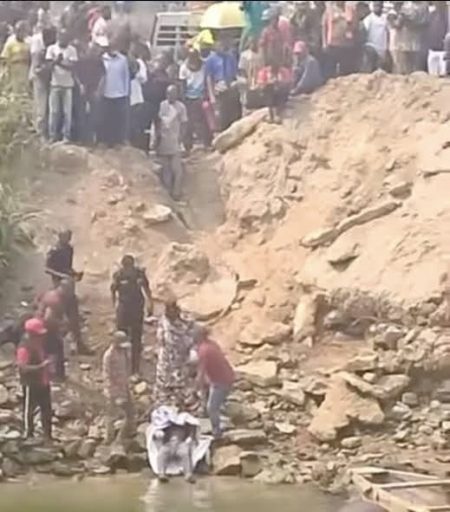 26 June 2013, Lagos – A major fire that forced Shell to shut down its Trans Niger Pipeline in southern Nigeria raises serious questions about the way the oil giant is operating, Amnesty International and the Nigerian National Coalition on Gas Flaring and Oil Spills, NACGOND, have said.
26 June 2013, Lagos – A major fire that forced Shell to shut down its Trans Niger Pipeline in southern Nigeria raises serious questions about the way the oil giant is operating, Amnesty International and the Nigerian National Coalition on Gas Flaring and Oil Spills, NACGOND, have said.
The organisations called for an independent inquiry into the events that led to the fire at Bodo in Rivers State – an area already devastated by years of oil pollution.
Eight Shell contractors were arrested by Nigerian security services in connection with the fire that broke out last week (19 June), following an oil spill at a section of the pipeline near Bodo that was being repaired by Shell contractors.
A Shell-led investigation into the cause of the fire is due to begin this week.
Shell claims the fire was a consequence of oil theft. However, community members told NACGOND that in the days leading up to the fire Nigerian security forces prevented anyone other than Shell’s contractors going near the area of the spill. From the shore people saw barges being loaded with oil and taken away from the site.
Director of Global Issues at Amnesty International, Audrey Gaughran, said: “Shell appears more concerned with conducting a PR operation than a clean-up operation. It should focus less on its reputation and start addressing the damage caused to the lives of the people of Bodo.”
Tracy Adole of NACGOND said: “Shell’s investigation into the cause of the fire is not enough. What’s needed is a fully transparent and independent inquiry into what happened at Bodo in the days before the fire and the role – and competence – of Shell’s contractors. There are serious unanswered questions as to who Shell entrusted with the high-risk repair of the pipeline, and about its own level of oversight.”
The fire broke out following an oil spill on 11 June in an area where Shell contractors were working on maintenance and repairs. The area was guarded by security forces apparently preventing unauthorised access. Local residents attempted to visit the site to assess the scale of the spill but were turned back.
Witnesses reported seeing oil being loaded onto barges by Shell’s contractors for several days after the spill.
Tracy Adole added: “The facts make it difficult to believe that anyone other than Shell’s contractors were in the vicinity in the days leading up to the fire. Shell was quick to blame oil theft as the cause of the latest pollution and fire at Bodo, but the company has yet to fully answer for the role of its own contractors.”
Over the last decade, Shell has claimed that most of the oil spilt in the Niger Delta is due to oil theft and sabotage of its pipelines. The company bases these claims on a system that includes publicly contested data and relies almost exclusively on information provided by the company itself.
The alleged theft and sabotage cases have not been verified by any independent bodies.
Last week, NCP, a Dutch company watchdog, found that Shell’s statements that sabotage is responsible for most oil spilt in Nigeria were based on disputed evidence and flawed investigations.
Background: In 2008 two massive oil spills occurred at Bodo in the Niger Delta. Both were the result of operational failures by Shell. Despite the enormous environmental damage done, Shell have yet to clean up the spills. The community has now taken their case to the UK courts to seek compensation and clean up.
In 2011 a major scientific study carried out by the UN Environmental Programme documented serious problems with Shell’s response to oil spills. The same study noted that Nigerian regulators were “at the mercy” of oil companies when it comes to site visits to investigate oil spills.
Amnesty International asked Shell for a response to the latest spill and fire at Bodo and the arrest of contractors in relation to oil theft. Shell directed Amnesty to its public statement.



